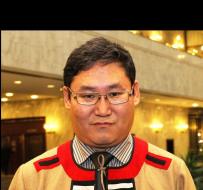Indigenous peoples live in Central and Eastern Europe, Russian Federation, Central Asia, and Transcaucasia. Indigenous peoples are adapting to climate change using their traditional knowledge and customary practices. Through practices such as the examples on this page and in the info hub as well as in the resources section below, the adaptive capacity and level of resilience to the impacts of climate change is increased and ways of life and livelihoods continued.
The Nenets reindeer herders of Siberia, just as an example of this, have collaborated with non-Indigenous earth-observation practitioners to co-produce data sets that contribute to decision making, herd management and inform adaptive strategies. Satellite imagery has been analysed by reindeer herders to identify areas of iced pasture and wildfires.
For more information as how indigenous peoples across this region and the world are exchanging experiences, building capacity for engagement, and contributing towards climate policies and actions, please explore the LCIPP dedicated web portal.
You are invited to reach out to the regional representative and the alternate, and to share your experiences through the ways to engage button on this web portal.
-
| Organization | Introduction | Contact details |
|---|---|---|
News items relevant to indigenous peoples in this region will appear here.

